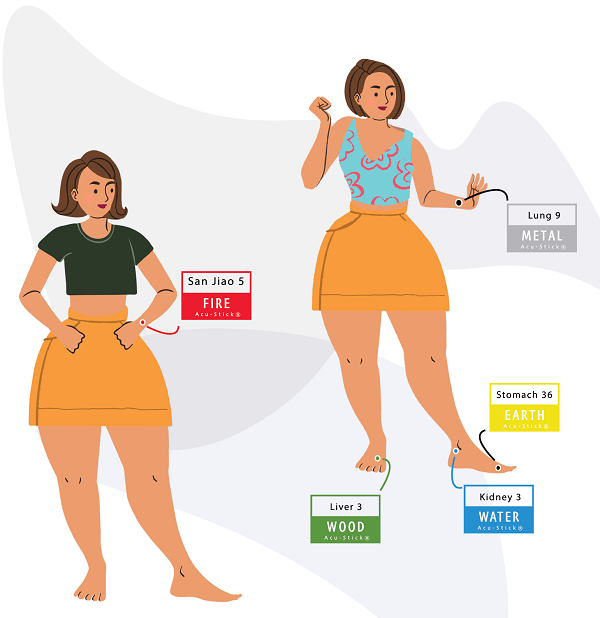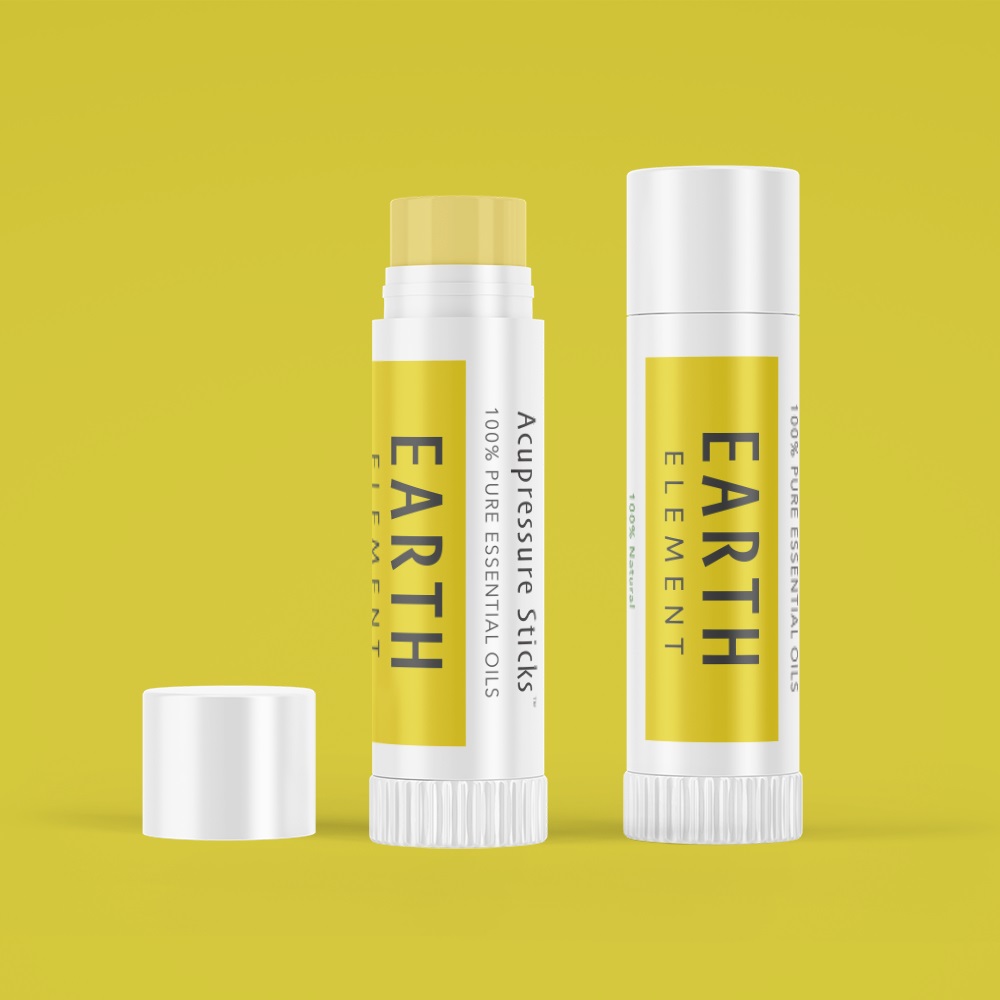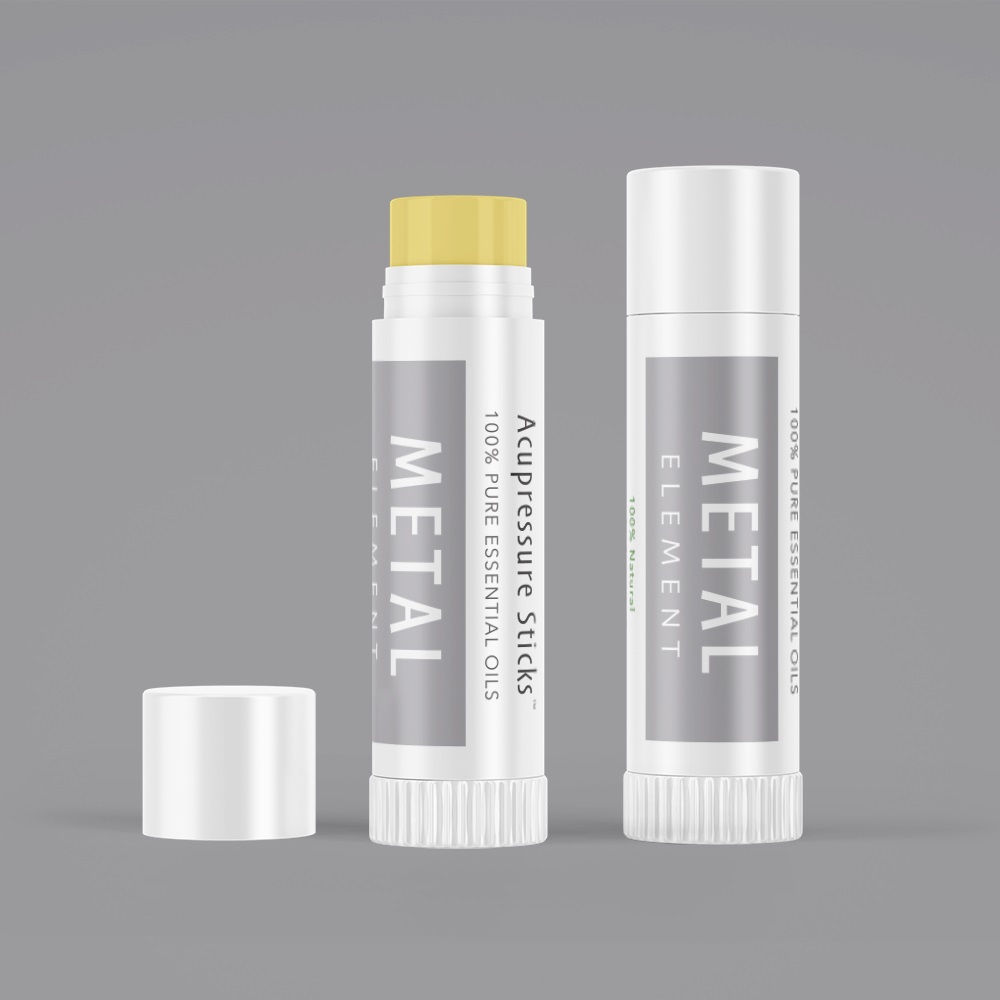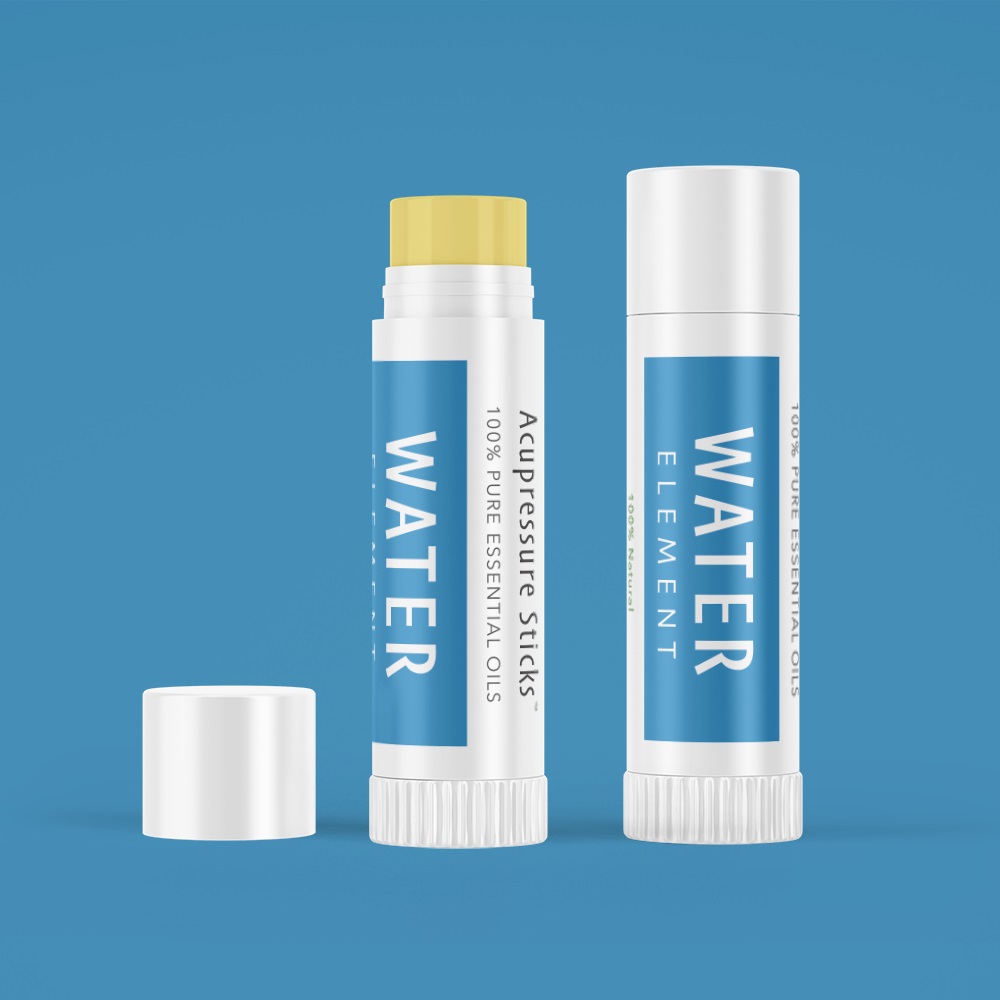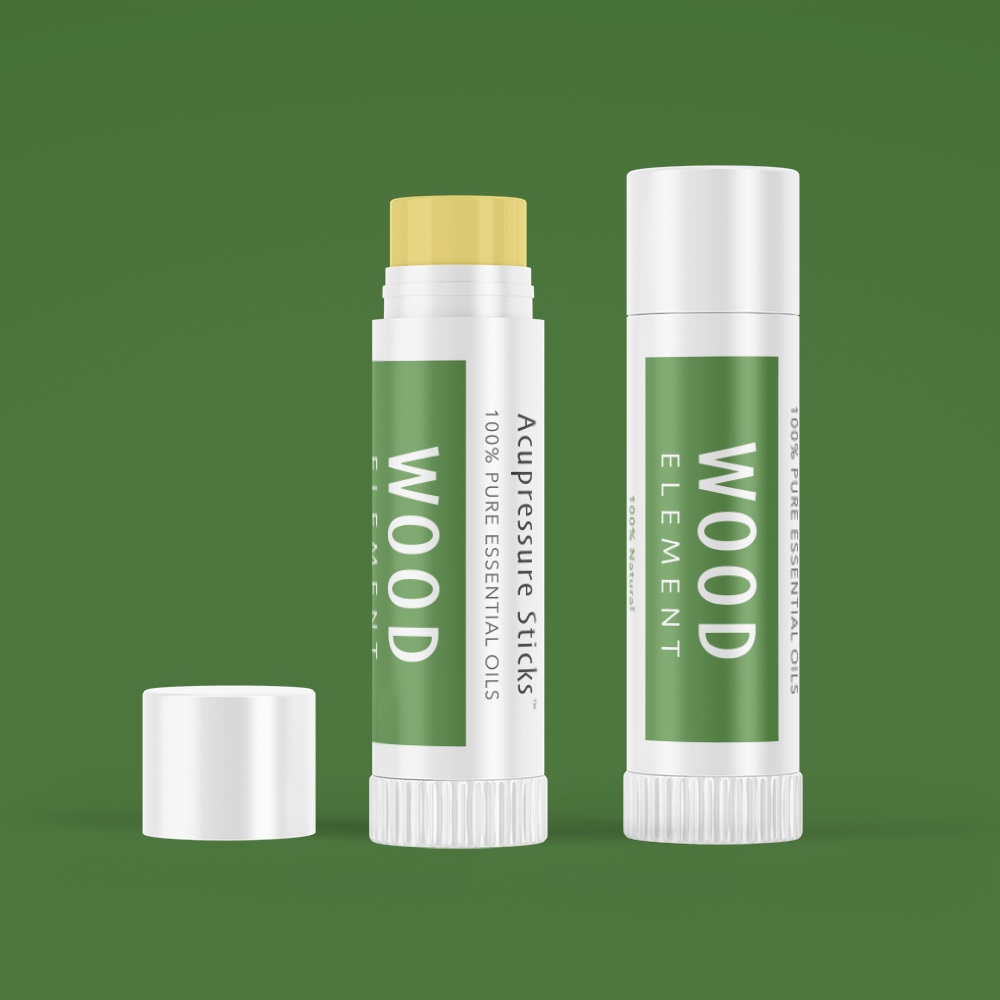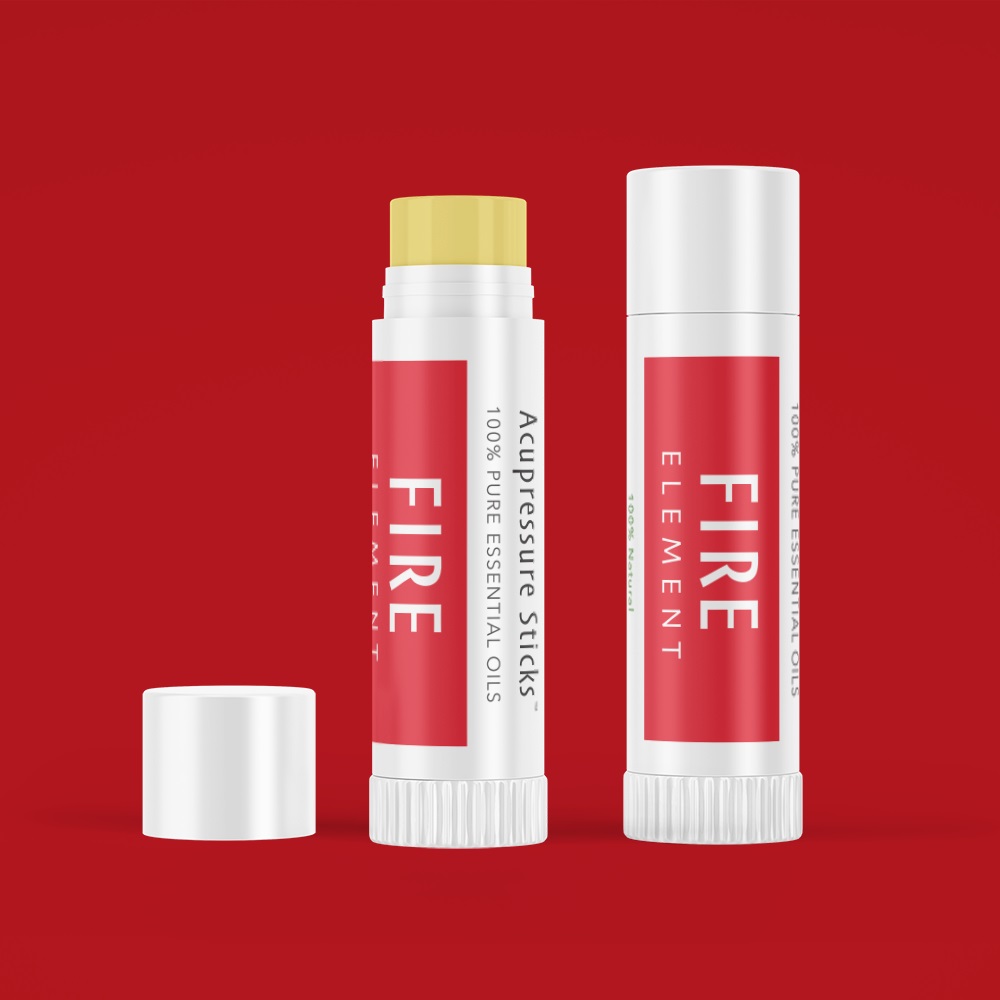Wei Qi-Immune Support
Traditional Chinese Medicine and Wei Qi
According to Chinese medicine, disease is more likely to occur when defenses have been weakened and resources have been depleted. If a person maintains an unhealthy diet or does not get adequate sleep over time, the Wei Qi is weakened and they will not be resilient; similarly, if a person is exposed to excessive amounts of damp weather or wind, their Wei Qi and adaptive strengths will weaken and they can more easily develop an external pathogen, or viral infection. The Wei Qi of Chinese medicine might be likened to the innate immune response in Western medicine, whereas, the adaptive immune response would correspond more closely to the functions of the major Yin organs of Chinese medicine and their relative strength or balance. For best outcomes using self-care, combine associated Aroma Acu-Sticks® to acu-points, topical remedies, and good lifestyle practices.
![]()
Aroma Acu-therapy™ to Support the Wei Qi
Apply the Earth Element Aroma Acu-Stick® to activate Acupressure Point ST 36
Why? Acu-point ST 36 is a major point for normalizing the immune system. It is also used to bolster Qi, and therefor can help to bolster Wei Qi.
Apply the Metal Element Aroma Acu-Stick® to activate Acupressure Point LU 9
Why? Acu-point LU 9 is the Source Point of the Lung energetic organ system that is closely associated with the Wei Qi as the skin is part of the Metal Element and the Wei Qi circulates (generally) at the level of the skin.
Kidney 3
Apply the Water Element Aroma Acu-Stick® to activate Acupressure Point KI 3
Why? Acu-point KI 3 is the Source Point of the Kidney energetic organ system and promotes vitality necessary for resistance to pathogens and illness. It also works to lessen our vulnerabilities to genetically-based auto-immune diseases and immune deficiencies as it fortifies our Essence, or Jing.
Apply the Wood Element Aroma Acu-Stick® to activate Acupressure Point LV 3
Why? Acu-point LV 3 is the energy source point for the Liver energetic organ system and the Liver is a major organ of detoxification in the body. The Liver also promotes the free flow of Qi throughout the body, including Wei Qi.
Apply the Fire Element Aroma Acu-Stick® to activate Acupressure Point San Jiao 5
Why? The San Jiao, or Triple Burner, is responsible for metabolic communications between all of the organ systems harmonizing systems involved with a healthy immune response. Also, the San Jiao belongs to Shao Yang, the pivot point between where pathogenic factors enter the body from the exterior and travel deeper to the interior where they can cause greater damage. San Jiao 5 is specific for expelling Wind pathogens and releasing them to the exterior.
Related Articles:
- How Aroma Acupressure Works
- Aroma Acu-therapy® Online Course
- Specific Acu-Point Locations
- The Five Elements of Chinese Medicine
Wei Qi Indications in Chinese Medicine According to Patterns of Imbalance
It is not uncommon for immune imbalances to be related to more than one energetic organ system according to Chinese medicine. Identifying your specific patterns by related symptoms will help you to formulate an effective self-care strategy.
Wei Qi–Lung Imbalance
The Lung system is the most exterior organ and is the first internal organ typically affected by exterior pathogens. The Lung system also includes skin and is associated with Wei Qi and the ability to have a strong defense as the Wei Qi circulates in the area of the level of the skin. This pattern would have symptoms of coughing, difficulty exhaling, wheezing, asthma, COPD, chronic bronchitis and so on.
Acupressure Point Combination Strategy:
- Apply the Earth Element Acupressure Stick to Acupressure Point Stomach 36
- Apply the Metal Element Acupressure Stick to Acupressure Point Lung 9
![]()
The Spleen according to Chinese medicine plays a central role in blood production and is responsible for how we utilize nutrients vital for a healthy immune response. The Spleen system also influences the amount of Internal Dampness that accumulates in the body. Internal Damp Phlegm creates stagnation throughout the body and throughout the lymphatic system impeding the lymph fluid from transporting toxins out of the body.
Acupressure Point Combination Strategy:
- Apply the Earth Element Acupressure Stick to Acupressure Point Stomach 36
- Apply the Earth Element Acupressure Stick to Acupressure Point Spleen 3
- Apply the Earth Element Acupressure Stick to Acupressure Point Spleen 6
- Apply the Earth Element Acupressure Stick to Acupressure Point Spleen 9
![]()
Wei Qi and Qi Deficiency
When there is not enough Qi and Blood circulating to the organs to properly nourish them, the organs become weak and susceptible to pathogens and disease. Deficient conditions would include a poor appetite and the person would be tired. Generally, a Wei Qi Deficiency would include a Qi Deficient pattern.
Acupressure Point Combination Strategy:
- Apply the Earth Element Acupressure Stick to Acupressure Point Stomach 36
- Apply the Earth Element Acupressure Stick to Acupressure Point Spleen 3
![]()
Wei Qi – Kidney Imbalances
The Kidney system includes bone marrow (and Blood production) in Chinese medicine and is closely associated with DNA and familial attributes of disease patterns. Abundant Jing, or Essence is vital in maintaining a healthy Wei Qi.
Acupressure Point Combination Strategy:
- Apply the Earth Element Acupressure Stick to Acupressure Point Stomach 36
- Apply the Water Element Acupressure Stick to Acupressure Point Kidney 6
- Apply the Water Element Acupressure Stick to Acupressure Point Kidney 3
![]()
Wei Qi and Toxic Excess
If Organ Systems become diseased the proper systems of elimination such as the lymphatic system, Liver, skin, and Kidneys will become less effective at dispersing toxins and accumulations will occur. Health in the body relies on the constant movement of Blood, Qi, and interstitial fluids; if fluids stagnate, they heat up just as a stagnant pond accumulates bacteria and algae and heats up. Moreover, an accumulation of toxins can in itself overpower the Wei Qi and create a friendly terrain for disease. Look to herbs for detoxification in cases of excess impeding the Wei Qi.
Acupressure Point Combination Strategy:
- Apply the Earth Element Acupressure Stick to Acupressure Point Stomach 36
- Apply the Metal Element Acupressure Stick to Acupressure Point Large Intestine 4
- Apply the Wood Element Acupressure Stick to Acupressure Point Liver 3
- Apply the Wood Element Acupressure Stick to Acupressure Point Gallbladder 41
![]()
Wei Qi and Sleep Disturbances
For many years we viewed sleep as lost or wasted time; however, scientific research performed over the last decade has proven that adequate sleep in necessary for good mental and physical health. Additionally, it has been shown that sleep in central in supporting immune health as it is during sleep when the central nervous system and immune system are able to communicate and regulate the body's bio-defenses and mediate communication through neurotransmitters, hormones, and cytokines (think San Jiao as mentioned at the top of the page where the 5 basic points are explained). (https://www.ncbi.nlm.nih.gov/pmc/articles/PMC5768894/)
Related Article: Insomnia and Sleep Problems-Acupressure Point Strategies and Natural Remedies
![]()
Wei Qi and Stress
Scientific studies draw a direct line from chronic stress to a reduced immune response, especially as we age. (https://www.ncbi.nlm.nih.gov/pmc/articles/PMC4082590/) In traditional Chinese medicine we use acupressure, stress adaptogen herbs, and meditation to normalize the stress response and make the individual more resilient to stress.
Related Article: Acupressure Strategies and Natural Herbal Remedies for Stress Management
![]()
Traditional Chinese Medicine-Wei Qi
In western medicine and eastern medicine the immune system is a functional system that includes a symphony of energetic organ systems that are interrelated. Chinese medicine focuses on maintaining balance throughout the human organism to maintain a healthy Wei Qi. If the body is able to be adaptogenic than it can be resistant to diseases.
According to Chinese medicine, the immune system begins with the Protective Qi, or Wei Qi. Wei Qi circulates just below the skin during the day and it keeps pathogens such as viruses, bacteria, and toxins at the exterior of the body. A strong Wei Qi wards off pathogens. If the Wei Qi is a bit weak, pathogens can 1st move to the exterior level of the body where they can cause a cold or flu. If the pathogen is not properly treated and expelled, it can move deeper to the organ system level where chronic disease patterns can develop. The body must have abundant Qi to maintain Wei Qi.
As any organic gardener can tell you, vegetables and herbs grown in a healthy rich soil are not as susceptible to pests and disease as plants that are grown in a poor soil. Likewise, a body that is nourished, healthy, and balanced is not susceptible to viral infections, bacterial infections, or disease.
Preventing disease has been a core concept in Chinese medicine; the Neijing, an ancient traditional Chinese medical texts states, “To administer medicines to diseases which have already developed and to suppress revolts which have already developed is comparable to the behavior of those persons who begin to dig a well after they have become thirsty, and of those who begin to make their weapons after they have already engaged in battle. Would these actions not be too late?” This belief was further emphasized by the fact that doctors of that time were paid to keep their flock well, and lost status if their patients fell ill.
In Traditional Chinese medicine (TCM), the Wei Qi circulates on the surface of the body, protecting the body from pathogens such as bacteria and viruses; this concept is loosely related to how modern medicine views the immune system and is thousands of years old. In western medicine, only viruses can cause viral infections. In Chinese medicine, viruses and other pathogens are ever present and do not generally pose a threat to health unless the Wei Qi is weak and cannot protect the body.
![]()
Cho, S. Y., Yang, S. B., Shin, H. S., Lee, S. H., Koh, J. S., Kwon, S., … Park, S. U. (2017). Anti-inflammatory and immune regulatory effects of acupuncture after craniotomy: study protocol for a parallel-group randomized controlled trial. Trials, 18(1), 10. doi:10.1186/s13063-016-1712-7
Lee, S. W., Liong, M. L., Yuen, K. H., & Krieger, J. N. (2014). Acupuncture and immune function in chronic prostatitis/chronic pelvic pain syndrome: a randomized, controlled study. Complementary therapies in medicine, 22(6), 965–969. doi:10.1016/j.ctim.2014.10.010
Chen, S., Qu, S. H., Zhang, Y., Wen, Z. H., Guo, S. N., Zeng, W. M., … Zhao, J. P. (2019). Impact of acupuncture for allergic rhinitis on the activity of the hypothalamus-pituitary-adrenal axis: study protocol for a randomized controlled trial. Trials, 20(1), 372. doi:10.1186/s13063-019-3424-2
Chen, L., Xu, A., Yin, N., Zhao, M., Wang, Z., Chen, T., … Chen, Z. (2017). Enhancement of immune cytokines and splenic CD4+ T cells by electroacupuncture at ST36 acupoint. .. PloS one, 12(4), e0175568. doi:10.1371/journal.pone.0175568
Robert-Guroff M. (2016). The Yin and Yang of ADCC-Mediating Antibodies. EBioMedicine, 3, 10–11. doi:10.1016/j.ebiom.2016.01.003
This information has not been evaluated by the Food and Drug Administration. This information is not intended to diagnose, treat, cure, or prevent any disease.

